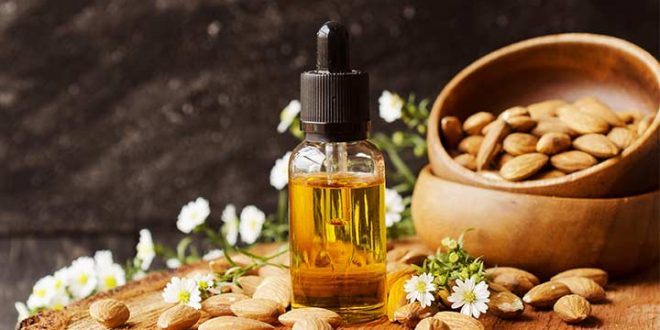What is almond oil?
Almost half the weight of a dried almond is oil. Ripe almonds oil are pressed to extract the oil with minimal heat. This unrefined almond oil protects the nutrients and flavor of the oil. High heat and sometimes chemicals are wont to create refined expressed almond oil . Although refined almond oil is more heat tolerant, it may not have the nutritional value of unrefined varieties. Almond oil, also called sweet almond oil, is not the same as bitter almond oil. Bitter almond oil is formed from a special sort of almonds. It is refined to eliminate toxins naturally present in the skin of almonds.
General benefits of almond oil
Almond oil is filled with vitamin E , and it is a great source of magnesium, phosphorus, and copper. The oil rich in antioxidants is known for its ability to fight free radicals. It is also anti-inflammatory and strengthens immunity. Containing omega-3 fatty acids, almond oil could help you maintain healthy cholesterol and improve your memory. This can help reduce the risk of illnesses like cancer and heart disease.
Benefits of almond oil for the skin
Almond oil has been used for hundreds of years to appease the skin and treat minor wounds and cuts. It was used in ancient Chinese and Ayurvedic practices to treat skin conditions such as eczema and psoriasis. More than just soothing dry skin, almond oil can improve skin tone and complexion. It is very emollient, which means it helps balance moisture absorption and water loss. Because it’s antibacterial and filled with vitamin A , expressed almond oil are often wont to treat acne. Its vitamin E concentration can also help heal sun damage, reduce the signs of aging and reduce scars. Almond oil absorbs quickly and is a powerful moisturizer, so it can be used on the face or body. You can apply it directly or mix it with essential oils to get its benefits. Beyond the hydration of your skin, almond oil is an excellent massage or skin treatment oil. It also has powerful antifungal properties. Rub it on your feet to prevent athlete’s foot or to help eliminate other fungal infections like ringworm. You can also use almond oil as a cleanser or to gently remove make-up.

Benefits of almond oil for hair
Your skin is not the only one who can benefit from almond oil. Nourishing oil can soften and strengthen your hair. It is rich in vitamin B-7, or biotin, so almond oil helps keep hair and nails healthy and strong. It also can help protect your hair from sun damage, with a natural SPF 5. You can use expressed almond oil as a scalp treatment. Its antibacterial and fungicidal properties make it effective in balancing the yeast that causes dandruff. It easily penetrates the skin, so almond oil works well to hydrate the scalp and cleanse the hair follicles.
Should you cook with almond oil?
Your heart will many thanks for eating expressed almond oil . Rich in monounsaturated fatty acids, almond oil can raise levels of “good” cholesterol or high density lipoprotein (HDL). It can also lower levels of “bad” cholesterol or low density lipoprotein (LDL) when it replaces saturated and trans fats.
Almond oil can help reduce the risk of cardiovascular disease because of its high levels of antioxidants, its ability to reduce inflammation in the body, and its effect on cholesterol. When cooking with almond oil, remember to keep unrefined or virgin oils on low heat to avoid burning the oil and destroying the nutritional value. Almond oil is best used for salad dressing, cooking over low heat or as a finishing oil on a dish to add flavor and nutrition. Its mild flavor makes it perfect for slipping into dishes. Refined oil can be used for roasting or sautéing as it has been treated to tolerate much higher heat, up to 420 ° F (215 ° C).
Read this : Marhaba Price in Pakistan

